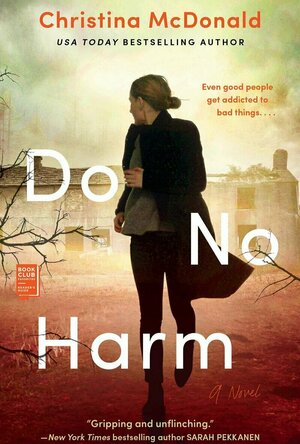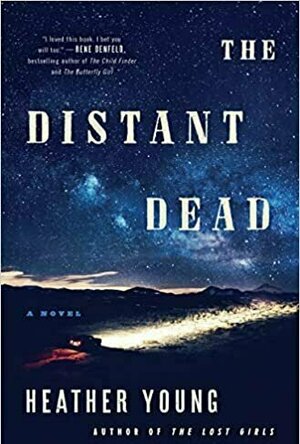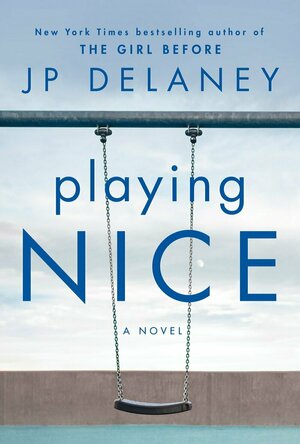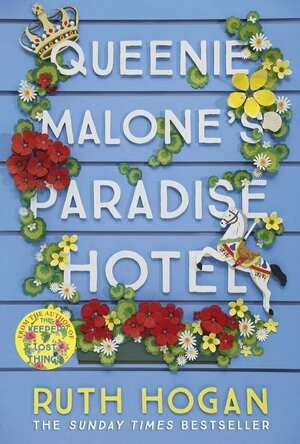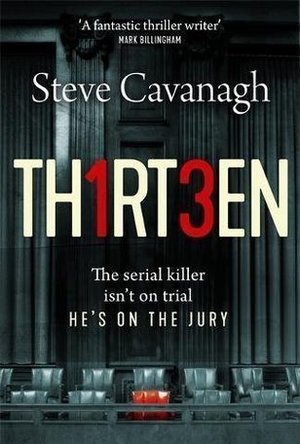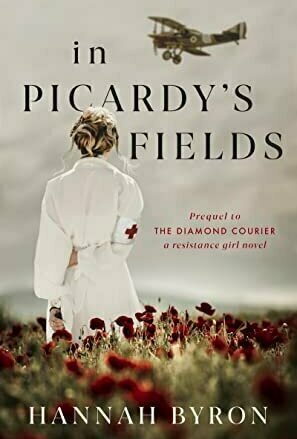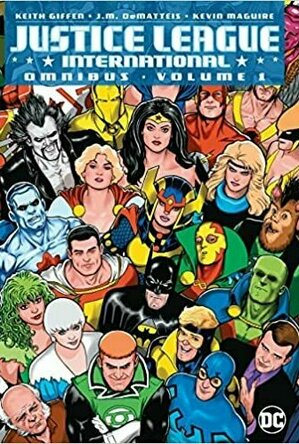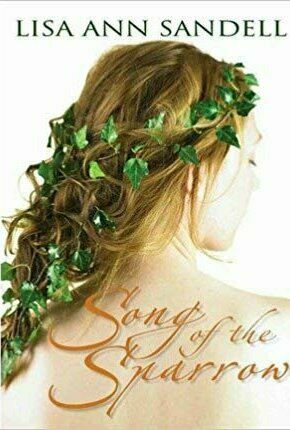Search
Search results
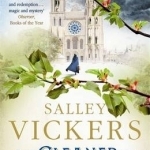
The Cleaner of Chartres
Book
'A lovely book ...wise at heart and filled with colourful characters' Joanne Harris, author of...
Kristy H (1252 KP) rated Do No Harm in Books
Feb 25, 2021
A dark look into how far a mother would go to save her child
After a tough childhood, where she was orphaned and spent time in foster care, Emma finally has the life she's always wanted. A successful doctor, she has a loving husband, Nate, and a young son, Josh. But that all stands to change when Josh, who is only five, is diagnosed with leukemia. Even with her hospital insurance, Josh's potential life-saving treatment will cost hundreds of thousands of dollars. Determined to save Josh no matter what, Emma makes the decision to sell opioids. Her choice puts her directly against Nate, a local police officer, who is investigating the death of a potential drug dealer. Emma will do anything to save Josh--does that include murder?
"I felt like I'd been dropped down a rabbit hole with the wolf sitting right outside. And the wolf was my husband."
This is a brutal dark read that pulls you into Emma and Nate's dilemma immediately. Personally, I found it hard to read about Josh's illness. I have a difficult time with books about kids being sick. But, McDonald is an excellent writer, and she does a wonderful job portraying stricken parents, pushed to the brink, who would do anything for their child. For Emma, it's turning to selling drugs. For Nate, it's working constantly to solve his current case, which means a promotion that could brings additional money for their family. The story is told from each of their perspectives, ratcheting up the tension with each chapter.
Emma, it seems, really has no limits on what she would do for Josh. McDonald makes the reader question: how far would you go to save your child? The book also offers a nuanced perspective on the opioid crisis, versus the usual "drugs bad" stance we get in many novels, which I appreciated. The entire novel makes you think and question standard perspectives in so many ways. It turns good versus evil and right versus wrong on its heels. And it offers a dark and insightful look into drug addiction and chronic pain and how families support each other (or don't).
Overall, this isn't an easy read, but it's a well-written and compelling one. It's timely, with an excellent perspective on the drug problems facing Americans and leaves the reader questioning much about right versus wrong. 4 stars.
I received a copy of this book from Gallery Books and Netgalley in return for an unbiased review. It is available on 2/16/2021.
"I felt like I'd been dropped down a rabbit hole with the wolf sitting right outside. And the wolf was my husband."
This is a brutal dark read that pulls you into Emma and Nate's dilemma immediately. Personally, I found it hard to read about Josh's illness. I have a difficult time with books about kids being sick. But, McDonald is an excellent writer, and she does a wonderful job portraying stricken parents, pushed to the brink, who would do anything for their child. For Emma, it's turning to selling drugs. For Nate, it's working constantly to solve his current case, which means a promotion that could brings additional money for their family. The story is told from each of their perspectives, ratcheting up the tension with each chapter.
Emma, it seems, really has no limits on what she would do for Josh. McDonald makes the reader question: how far would you go to save your child? The book also offers a nuanced perspective on the opioid crisis, versus the usual "drugs bad" stance we get in many novels, which I appreciated. The entire novel makes you think and question standard perspectives in so many ways. It turns good versus evil and right versus wrong on its heels. And it offers a dark and insightful look into drug addiction and chronic pain and how families support each other (or don't).
Overall, this isn't an easy read, but it's a well-written and compelling one. It's timely, with an excellent perspective on the drug problems facing Americans and leaves the reader questioning much about right versus wrong. 4 stars.
I received a copy of this book from Gallery Books and Netgalley in return for an unbiased review. It is available on 2/16/2021.
Kristy H (1252 KP) rated The Distant Dead in Books
Mar 4, 2021
A dark and well-written tale of sadness and forgiveness
Adam Merkel left his job as a professor in Reno to come to Lovelock, a small town, to teach math at their middle school. He was mostly mocked by his students, except for one, Sal Prentiss. After the death of his mother, Sal lives outside of town with his two uncles. Mostly friendless, he bonds with Mr. Merkel over math, chess, and more. So when Sal finds Mr. Merkel's body on his way to schoool--burned so that it's nearly unrecognizable--it turns his small world upside down. It upsets Nora Wheaton as well. A colleague of Adam's at the school, she thought she recognized a kindred spirit in him. Both seemed trapped in Lovelock: Nora had to return to care for her father. After Adam's death, Nora starts looking into his past to see what led to his horrible undoing. But so much of what she finds keeps leading back to the boy who befriended him--and found his body. As she tries to befriend the wary Sal, it opens up old wounds of her own.
I really loved Heather Young's book The Lost Girls, and The Distant Dead didn't disappoint either. She excels at creating excellent atmospheric novels with well-drawn characters. The Distant Dead perfectly captures small town life: how nearly everyone knows almost everything about everyone, but rarely interferes. How a small town can feel so stifling and claustrophobic. How the secrets and lies pile up until a man finds himself burned to death.
Young also covers the timely topics of drugs and addiction, which run as a thread across the book. Opiates don't seem like a tired trope here, though, but something that is eating up the town and ruining people's lives. It's no secret that I'm a sucker for a book with a good kid character, and I pretty much fell for Sal immediately. He's a great kid: real, vulnerable yet tough, and smart. He was an excellent narrator, with his portions telling what led up to Adam's death and Nora and Jake (a local EMT/firefighter) telling us what happened after. The book is surprisingly tense, with Young's beautifully written words jumping off every page. She's such a lyrical writer, weaving an amazing tale of sadness and redemption.
This isn't a fast read or a page-turning thriller. But it's a well-written book, with characters you won't soon forget. There's a lovely, albeit sad and dark, story here. Definitely worth a read. 4+ stars.
I really loved Heather Young's book The Lost Girls, and The Distant Dead didn't disappoint either. She excels at creating excellent atmospheric novels with well-drawn characters. The Distant Dead perfectly captures small town life: how nearly everyone knows almost everything about everyone, but rarely interferes. How a small town can feel so stifling and claustrophobic. How the secrets and lies pile up until a man finds himself burned to death.
Young also covers the timely topics of drugs and addiction, which run as a thread across the book. Opiates don't seem like a tired trope here, though, but something that is eating up the town and ruining people's lives. It's no secret that I'm a sucker for a book with a good kid character, and I pretty much fell for Sal immediately. He's a great kid: real, vulnerable yet tough, and smart. He was an excellent narrator, with his portions telling what led up to Adam's death and Nora and Jake (a local EMT/firefighter) telling us what happened after. The book is surprisingly tense, with Young's beautifully written words jumping off every page. She's such a lyrical writer, weaving an amazing tale of sadness and redemption.
This isn't a fast read or a page-turning thriller. But it's a well-written book, with characters you won't soon forget. There's a lovely, albeit sad and dark, story here. Definitely worth a read. 4+ stars.
BookInspector (124 KP) rated Playing Nice in Books
Nov 9, 2020
The protagonists in this story were Pete and Maddie, and the story is told from their perspectives. Pete is unemployed/freelance journalist, who loves being the main carer of his son – Theo. Pete is very sweet and a true people pleaser. Maddie is working in advertising and has difficulty finding her motherly instinct when it comes to Theo. We also have Miles and Lucy, the real Theo’s parents, that are truly strange. The only character I really liked was Pete, he is just so sweet and innocent man. I did not like Maddie, I think she is an absolute hypocrite. However, I have to admit, her input in this book was intriguing. The author is an absolute expert when it comes to creating psychopaths in his novels. Every single book has one, and they are really well developed and delivered. In this book it was Miles. I really have nothing good to say about him at all, except that he is a master of deceit and nastiness.
The plot of this novel started pretty slow. It was a pity to see Pete struggling so much, but when the cruel twists came through, my blood just boiled for all the injustice happening in this book. It was like an avalanche of bad news hitting Pete and Maddie, and all that made me sad, angry and kind of annoyed. The topics discussed in this book were premature babies, mental health issues, infidelity, controlling and psychopathic partners and their behaviour, the legal system in the UK, family courts, challenging of “stay at home dad” stigma, and many more. I really liked how the author released the important information in this novel, some of it was thrown in like a bomb, but other important details were shared slowly throughout the book.
I really like the writing style, it is very well researched, truly personal and a challenging read. The book is set in London, and I really enjoy learning about different boroughs. The chapters are pretty short, and the book is so riveting and emotionally absorbing, that the pages just flew by to me. I really liked the ending of this book, it is very surprising but extremely satisfying, to say the least. 🙂
So, to conclude, I strongly recommend this novel to everyone who loves a good psychological thriller. I would love to see this book made into a film. The characters are all so different, unique and intriguing, and the plot is exceptionally well crafted, filled with so many emotions, that it is really hard to read this book without feeling something (in my case it was anger and pity).
The plot of this novel started pretty slow. It was a pity to see Pete struggling so much, but when the cruel twists came through, my blood just boiled for all the injustice happening in this book. It was like an avalanche of bad news hitting Pete and Maddie, and all that made me sad, angry and kind of annoyed. The topics discussed in this book were premature babies, mental health issues, infidelity, controlling and psychopathic partners and their behaviour, the legal system in the UK, family courts, challenging of “stay at home dad” stigma, and many more. I really liked how the author released the important information in this novel, some of it was thrown in like a bomb, but other important details were shared slowly throughout the book.
I really like the writing style, it is very well researched, truly personal and a challenging read. The book is set in London, and I really enjoy learning about different boroughs. The chapters are pretty short, and the book is so riveting and emotionally absorbing, that the pages just flew by to me. I really liked the ending of this book, it is very surprising but extremely satisfying, to say the least. 🙂
So, to conclude, I strongly recommend this novel to everyone who loves a good psychological thriller. I would love to see this book made into a film. The characters are all so different, unique and intriguing, and the plot is exceptionally well crafted, filled with so many emotions, that it is really hard to read this book without feeling something (in my case it was anger and pity).
BookInspector (124 KP) rated Queenie Malone's Paradise Hotel in Books
Sep 24, 2020
The protagonist in this book was Tilda/Tilly, and she is sharing her life story. The story keeps switching between present and past, Tilly is sharing her life story from when she was little, and Tilda is sharing the events happening now. I really loved this kind of storytelling, the same person, but perspectives completely different and unique. Tilly is absolutely adorable and very grown up for her age. I loved everything about her, she is a funny, playful, smart and very extraordinary little girl. Tilda, on the other hand, was a very strange persona, who sounds very messed up and weird. My least favourite character would be the mother, I honestly didn’t understand the reasoning for what she was doing, it just didn’t make sense to me.
The narrative is carrying two different stories, but they are very entwined with each other. Tilda’s relationship with her mother is very complex, she can’t understand why her mother done some of the things in the past, so when she finds out, it leaves her gobsmacked. It is a very painful and emotional story to read, it shows how misunderstood people and their actions can affect you for the rest of your life. I really loved this constant suspense, I was dying to find out more about Tilly’s mother, and the author was very creatively teasing me all the time. This novel carries a great variety of characters, who are very intriguing, and Tilly’s gift makes the whole book very mysterious.
The writing style of this novel felt like a hug, it feels very comforting, snugly and absorbing. The language is easy to read, but it got me thinking because some things were a little confusing. The one thing that didn’t really leave me happy was chapter length and paragraph size. I know it is silly, but I normally read on my commute, so I prefer shorter chapters and paragraphs, it is easier to follow later on. The ending was very well thought through and rounded the story well, but I think it was very unfair and cruel.
To conclude, it is a very well written novel, filled with difficult relationships, very unique characters and layered plot. I really enjoyed different storylines as well as unexpected turns and twists. I am definitely in love with Ruth Hogan’s writing, and will definitely be going to read her previous novels. So, please, do give this book a go, and I hope you will enjoy it as much as I did.
The narrative is carrying two different stories, but they are very entwined with each other. Tilda’s relationship with her mother is very complex, she can’t understand why her mother done some of the things in the past, so when she finds out, it leaves her gobsmacked. It is a very painful and emotional story to read, it shows how misunderstood people and their actions can affect you for the rest of your life. I really loved this constant suspense, I was dying to find out more about Tilly’s mother, and the author was very creatively teasing me all the time. This novel carries a great variety of characters, who are very intriguing, and Tilly’s gift makes the whole book very mysterious.
The writing style of this novel felt like a hug, it feels very comforting, snugly and absorbing. The language is easy to read, but it got me thinking because some things were a little confusing. The one thing that didn’t really leave me happy was chapter length and paragraph size. I know it is silly, but I normally read on my commute, so I prefer shorter chapters and paragraphs, it is easier to follow later on. The ending was very well thought through and rounded the story well, but I think it was very unfair and cruel.
To conclude, it is a very well written novel, filled with difficult relationships, very unique characters and layered plot. I really enjoyed different storylines as well as unexpected turns and twists. I am definitely in love with Ruth Hogan’s writing, and will definitely be going to read her previous novels. So, please, do give this book a go, and I hope you will enjoy it as much as I did.
BookInspector (124 KP) rated Thirteen in Books
Sep 24, 2020
More reviews on https://bbookinspector.wordpress.com
The story is told from a dual perspective – Eddie’s and Kane’s. These two characters would be our protagonists. Eddie is a defence attorney, a man with a very messed up personal life, who keeps making very dangerous decisions, and that is what makes him so awesome. Eddie has his faults and is not perfect, but at the same time, he is so intriguing and incredibly smart! Kane is a genius psychopath, (Hannibal Lecter could be his inspiration 😀 ), who can steal any identity he chooses. So, when you have these two amazingly developed personalities, the story can’t be boring. 😀
And of course, it is not! The narrative is very well paced, creating optical illusions and mind games in every chapter. It has plenty of twists, turns and unexpected findings, and the plot absolutely absorbed me. I love when authors include murderers and their thoughts in the thrillers, Kane’s actions and thoughts gave so much depth and intrigue to this book, and it was an absolute joy to read it. I really enjoyed Eddie’s smart moves while solving this case, but he was pretty lucky to get all the information delivered to him, without the help, I don’t think he could’ve succeeded as much. I really liked, that Steve Cavanagh utilized his knowledge of courts and jury in this book, there were plenty of new things I learned, and I am very grateful for that.
I loved the writing style of this book, it is easy and understandable, and this book can easily be read as stand alone. The characters used from the past are well explained and didn’t leave me confused. The chapters are pretty short, and due to constant change between the characters, the pages just fly by. I do have to throw in a disclaimer that there are plenty of blood, graphic murders, and other gross things described in this book, so before reading, make sure you can stomach that. 😀 I really enjoyed the ending and all the surprises it brought, I think it rounded up the story very nicely.
So, to conclude, Steve Cavanagh definitely knows what he is doing when it comes to writing. He is a master of crime novels, and even though this book was my first encounter with this author’s work, it definitely will not be the last. He chose perfect characters for this book, and the plot kept me guessing and always intrigued. I thoroughly enjoyed this court thriller, and it is an absolute must-read. I do hope you will like it as much as I did. Enjoy 🙂
The story is told from a dual perspective – Eddie’s and Kane’s. These two characters would be our protagonists. Eddie is a defence attorney, a man with a very messed up personal life, who keeps making very dangerous decisions, and that is what makes him so awesome. Eddie has his faults and is not perfect, but at the same time, he is so intriguing and incredibly smart! Kane is a genius psychopath, (Hannibal Lecter could be his inspiration 😀 ), who can steal any identity he chooses. So, when you have these two amazingly developed personalities, the story can’t be boring. 😀
And of course, it is not! The narrative is very well paced, creating optical illusions and mind games in every chapter. It has plenty of twists, turns and unexpected findings, and the plot absolutely absorbed me. I love when authors include murderers and their thoughts in the thrillers, Kane’s actions and thoughts gave so much depth and intrigue to this book, and it was an absolute joy to read it. I really enjoyed Eddie’s smart moves while solving this case, but he was pretty lucky to get all the information delivered to him, without the help, I don’t think he could’ve succeeded as much. I really liked, that Steve Cavanagh utilized his knowledge of courts and jury in this book, there were plenty of new things I learned, and I am very grateful for that.
I loved the writing style of this book, it is easy and understandable, and this book can easily be read as stand alone. The characters used from the past are well explained and didn’t leave me confused. The chapters are pretty short, and due to constant change between the characters, the pages just fly by. I do have to throw in a disclaimer that there are plenty of blood, graphic murders, and other gross things described in this book, so before reading, make sure you can stomach that. 😀 I really enjoyed the ending and all the surprises it brought, I think it rounded up the story very nicely.
So, to conclude, Steve Cavanagh definitely knows what he is doing when it comes to writing. He is a master of crime novels, and even though this book was my first encounter with this author’s work, it definitely will not be the last. He chose perfect characters for this book, and the plot kept me guessing and always intrigued. I thoroughly enjoyed this court thriller, and it is an absolute must-read. I do hope you will like it as much as I did. Enjoy 🙂
Hazel (1853 KP) rated In Picardy's Fields in Books
Nov 27, 2020
Told from two perspectives, In Picardy's Fields is the story of two brave young women during the First World War. Set mostly in France, the two women put gender stereotypes to one side to help the allied soldiers. Baroness Agnès de Saint-Aubin, a young surgeon from Paris, follows her teacher, Dr Alan Bell, to the Château de Dragoncourt on the front lines in Picardy to help her friends, Jacques and Elle de Dragoncourt care for the injured soldiers. Meanwhile, the youngest Dragoncourt child, Madeleine, is determined to escape from her finishing school in Switzerland to play her part in the war effort.
The author, Hannah Byron, accurately describes the devastation and dangers the characters faced both in Paris and at the front. Flowing seamlessly from scene to scene, Byron paints a dark picture of life in wartorn France at the same time as weaving a captivating story. Agnès is a reticent but strong woman, a stark contrast from the stuck-up Madeleine, used to getting her way. Yet both characters develop, forced to face horrifying circumstances. While Agnès becomes more confident, Madeleine uses her head-strong determination to secretly help the allied soldiers, even if it means putting herself in danger.
Whilst the war is the main feature of the novel, the author weaves themes of friendship and romance into the narrative. Although only two people narrate the story, In Picardy's Fields shows the importance of working together and putting aside prejudices. The undercurrent of a developing romance brings a sense of hope that everything will end happily, yet the reader also knows nothing is safe during wartime. With each turn of the page, disaster could befall the characters, which makes for a gripping read.
Hannah Byron admits she is not a medic or war expert, yet she undertook extensive research to make In Picardy's Fields as accurate as possible. She also confesses it is unlikely a female doctor went to the front lines, yet as a work of fiction, this does not matter, especially as Agnès's profession is key to the story.
Authors have written novels about the World Wars ad nauseum to the point that writing an original story seems impossible, but Hannah Byron proves this assumption wrong. In Picardy's Fields feels almost modern in some respects, despite being set in the 1910s, which adds a freshness to the story. These women, these characters are just like you and me, living in a time we could not possibly understand.
In Picardy's Fields is a fantastic debut novel and Hannah Byron is a writer to keep an eye on.
The author, Hannah Byron, accurately describes the devastation and dangers the characters faced both in Paris and at the front. Flowing seamlessly from scene to scene, Byron paints a dark picture of life in wartorn France at the same time as weaving a captivating story. Agnès is a reticent but strong woman, a stark contrast from the stuck-up Madeleine, used to getting her way. Yet both characters develop, forced to face horrifying circumstances. While Agnès becomes more confident, Madeleine uses her head-strong determination to secretly help the allied soldiers, even if it means putting herself in danger.
Whilst the war is the main feature of the novel, the author weaves themes of friendship and romance into the narrative. Although only two people narrate the story, In Picardy's Fields shows the importance of working together and putting aside prejudices. The undercurrent of a developing romance brings a sense of hope that everything will end happily, yet the reader also knows nothing is safe during wartime. With each turn of the page, disaster could befall the characters, which makes for a gripping read.
Hannah Byron admits she is not a medic or war expert, yet she undertook extensive research to make In Picardy's Fields as accurate as possible. She also confesses it is unlikely a female doctor went to the front lines, yet as a work of fiction, this does not matter, especially as Agnès's profession is key to the story.
Authors have written novels about the World Wars ad nauseum to the point that writing an original story seems impossible, but Hannah Byron proves this assumption wrong. In Picardy's Fields feels almost modern in some respects, despite being set in the 1910s, which adds a freshness to the story. These women, these characters are just like you and me, living in a time we could not possibly understand.
In Picardy's Fields is a fantastic debut novel and Hannah Byron is a writer to keep an eye on.
Joe Goodhart (27 KP) rated Justice League International, Vol. 1 in Books
Nov 30, 2020
I am a 50 year old comic reader. In this life, you should pick one hobby, stick with it, and make it your own. It's hard to do that when you have been reading "the funny pages" for pretty much most of your life. However, I am adapting, learning to leave the current Marvel and DC reboots and events be, as I am not the market they are aimed at. Instead, I have been content to re-read the old TPBs digitally, remembering what kept me interested in the comics.
I started re-reading JLI, as it was, and still is, one of my best memories of the late 80s-early 90s. The series was always sure to inspire me to laugh out loud, while reading what sort of crap Blue Beetle and Booster Gold would get themselves into. My strongest memories are of when then-unknown Adam Hughes took over the art, replacing Kevin Maguire. But, talking of that takes away from this particular Volume, where the magic, as it were, was to begin.
Let's jump into the art, since we were talking about that just a moment ago. Here, it is reminiscent of the 80s. Bright colors, fun attitude, new costumes. All of that was here, drawn perfectly by Kevin Maguire, with inks by Terry Austin (for issue 1) and Al Gordon thereafter. Everything about the series' art was a testament to the new direction the team was going, and it definitely worked!
The writing was okay. I remember the series as being funnier, but the first volume was necessary, as it was needed for the setting up, introducing the members and what their dynamic would be. The stories are not required reading, as I am just starting the third volume, and I feel you could skip this volume. Most notable, this was the first time we see Batman layout that misogynist of a GL, Guy Gardner. That alone is worth the price of admission indeed!
Look, there is nothing wrong with this Volume, other than the inside material overall was good, but not as great as I wanted to remember. Sure, the team was written in a fun way (something missing in the books today), but overall, I wanted to get to the bigger "Bwa-hahaha" that lay ahead.
So, final conclusion? It's up to you. I would say "Sure, give it a shot". There's a helluva lot worse graphic novels/TPBs you could be spending your hard earned cash on!
I started re-reading JLI, as it was, and still is, one of my best memories of the late 80s-early 90s. The series was always sure to inspire me to laugh out loud, while reading what sort of crap Blue Beetle and Booster Gold would get themselves into. My strongest memories are of when then-unknown Adam Hughes took over the art, replacing Kevin Maguire. But, talking of that takes away from this particular Volume, where the magic, as it were, was to begin.
Let's jump into the art, since we were talking about that just a moment ago. Here, it is reminiscent of the 80s. Bright colors, fun attitude, new costumes. All of that was here, drawn perfectly by Kevin Maguire, with inks by Terry Austin (for issue 1) and Al Gordon thereafter. Everything about the series' art was a testament to the new direction the team was going, and it definitely worked!
The writing was okay. I remember the series as being funnier, but the first volume was necessary, as it was needed for the setting up, introducing the members and what their dynamic would be. The stories are not required reading, as I am just starting the third volume, and I feel you could skip this volume. Most notable, this was the first time we see Batman layout that misogynist of a GL, Guy Gardner. That alone is worth the price of admission indeed!
Look, there is nothing wrong with this Volume, other than the inside material overall was good, but not as great as I wanted to remember. Sure, the team was written in a fun way (something missing in the books today), but overall, I wanted to get to the bigger "Bwa-hahaha" that lay ahead.
So, final conclusion? It's up to you. I would say "Sure, give it a shot". There's a helluva lot worse graphic novels/TPBs you could be spending your hard earned cash on!
Becs (244 KP) rated Song Of The Sparrow in Books
Oct 2, 2019
Genre: Historical Fiction, Young Adult, Fantasy, Poetry, Romance.
Type: Stand-alone
Audience/ Reading Level: 12+
Interests: King Arthur and the Knights of the Round Table, Historical Reads, Lyricism, Poetry, Retellings.
Point of View: Third person
Promise: A tale of love, betrayal, and war.
Insights: I have no idea where or when I received/ got this novel. But ever since that day, Song of the Sparrow has been one of my favorite retellings of King Arthur and the Knights of the Round Table. My copy is very beaten up, so it’s gotten it’s many of read-throughs in. It also makes me think that I use to be pretty rough with my books. (what in the heck is wrong with you Becca! smh) I remember reading through SotS and thinking of myself as Elaine, the MC. Does anybody else do that? Because it hasn’t gone away with me.
I loved every aspect of this little novel. My favorite part was not only the retelling of King Arthur and the Knights but also how the novel was written in a sort of lyricism way, a lot like poetry. Novels written this way have always drawn my attention and I find them quite refreshing to read when in a slump or trying to get out of one.
Favorite Quotes: “I am Elaine daughter of Barnard of Ascolat. Motherless. Sisterless. I sing these words to you now, because the point of light grows smaller, ever smaller now, even more distant now. And with this song, I pray I may push back the tides of war and death. So, I sing these words that this light, this tiny ray of light and hope may live on. I dare not hope that I may live on too.”
“So long ago now. But you remind me of her, you know. Sometimes I forget that you are not she. Sometimes I forget that I should not blame you for leaving me. It was her. I was her.”
What will you gain?: A new telling of what life back in the olden days was like for a female in an all men village.
Aesthetics: Everytime I read-through Song of the Sparrow, I always stare at the cover. Something about it is just very appealing, not only to the eyes but also with the mind. Another aesthetic I found that I loved was how the story was written like lyricism/poetry.
“And at that moment, a lilting melody lifts to the moon as a single sparrow sings.”
Type: Stand-alone
Audience/ Reading Level: 12+
Interests: King Arthur and the Knights of the Round Table, Historical Reads, Lyricism, Poetry, Retellings.
Point of View: Third person
Promise: A tale of love, betrayal, and war.
Insights: I have no idea where or when I received/ got this novel. But ever since that day, Song of the Sparrow has been one of my favorite retellings of King Arthur and the Knights of the Round Table. My copy is very beaten up, so it’s gotten it’s many of read-throughs in. It also makes me think that I use to be pretty rough with my books. (what in the heck is wrong with you Becca! smh) I remember reading through SotS and thinking of myself as Elaine, the MC. Does anybody else do that? Because it hasn’t gone away with me.
I loved every aspect of this little novel. My favorite part was not only the retelling of King Arthur and the Knights but also how the novel was written in a sort of lyricism way, a lot like poetry. Novels written this way have always drawn my attention and I find them quite refreshing to read when in a slump or trying to get out of one.
Favorite Quotes: “I am Elaine daughter of Barnard of Ascolat. Motherless. Sisterless. I sing these words to you now, because the point of light grows smaller, ever smaller now, even more distant now. And with this song, I pray I may push back the tides of war and death. So, I sing these words that this light, this tiny ray of light and hope may live on. I dare not hope that I may live on too.”
“So long ago now. But you remind me of her, you know. Sometimes I forget that you are not she. Sometimes I forget that I should not blame you for leaving me. It was her. I was her.”
What will you gain?: A new telling of what life back in the olden days was like for a female in an all men village.
Aesthetics: Everytime I read-through Song of the Sparrow, I always stare at the cover. Something about it is just very appealing, not only to the eyes but also with the mind. Another aesthetic I found that I loved was how the story was written like lyricism/poetry.
“And at that moment, a lilting melody lifts to the moon as a single sparrow sings.”
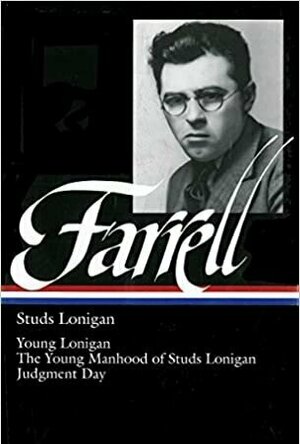
Studs Lonigan
Book
This Library of America volume contains one of the masterpieces of American naturalism and a major...
